Vivek Ramaswamy Is Encouraged by the Backlash Against Wokeism
14 Sep 2022
CLAY: We are joined now by Vivek Ramaswamy, founder/executive chairman of Strive, author of a new book, Nation of Victims, which was released yesterday. And I love the concept. I have not yet read the book. I read Woke, Inc. and really enjoyed it. So, Vivek, how do we cure our national victimization culture? What has to happen?
RAMASWAMY: Yeah, great question. In many ways, this book is the sequel to Woke, Inc. because, you know, Woke, Inc. was about how corporate America’s exploiting these victimhood and identity narratives and using it to make an extra buck, but it does take two to tango, and, at the end of the day, a base of consumers, an entire generation of Americans, are vulnerable to exploitation because they buy into those same narratives themselves. And so what I do in the book is I trace what’s at the heart of our victimhood cancer today. But your question is what do we do about it? Which is the right question.
 The case I make is we need to refill our national identity with the pursuit of excellence. It is why my parents came to this country. It is why immigrants come to this country through the front door. It used to be what is meant to be American, to be able to pursue excellence, to be able to do it unapologetically. And that’s the kind of culture we’re gonna have to review in our institutions from schools, to corporate America, to our economy, to our politics. It takes a book to explain how to do that, but that’s what this is about.
The case I make is we need to refill our national identity with the pursuit of excellence. It is why my parents came to this country. It is why immigrants come to this country through the front door. It used to be what is meant to be American, to be able to pursue excellence, to be able to do it unapologetically. And that’s the kind of culture we’re gonna have to review in our institutions from schools, to corporate America, to our economy, to our politics. It takes a book to explain how to do that, but that’s what this is about.
BUCK: Vivek, are you seeing…? It’s Buck, and thanks. Are you seeing any indications that backlash against wokeness may play a meaningful role in the upcoming elections because I still remember back to last year’s election cycle where the indoctrination of children in schools in particular was a major issue in the Virginia gubernatorial race that led to Glenn Youngkin’s, at the time seemingly shocking win but in retrospect makes a lot of sense. Is wokeness gonna play a major role, or do you think that’s something that we need to focus more on?
RAMASWAMY: Well, so I think it’s playing a major role already in shaping our culture, including the backlash, as you put it. It’s changing our culture for the better. I’m seeing some of the positive effects in corporate America, frankly. I’m working on some of those. When it comes to the election, though, I think there’s a lot of confounding variables this year. I think that the dialogue turning back to Trump, the abortion-related debate, I think there are a lot of confounding factors that could affect the electoral outcome this fall.
I personally think those were still distractions from the longer term issues in our culture that wokeness goes to the heart of, and the marriage between wokeness and capitalism, and then the victimhood culture that that then further perpetuates. I’m biased to say it matters because these are the topics I’m writing about and most focused on but I’m actually writing about them and most focused on them because I think they are the most important themes for our culture that our politics should also care about and I think conservatives will be more successful if they’re able to lead the way in this conversation.
So the election, you know, there’s a lot of variables that may have gotten in the way in recent months that may or may not make that a focal point for the electoral backlash. But in corporate America, I mean, you take a company like Netflix, which has done a complete 180 in the last year. You know, it took disastrous earnings in the first or second quarter of this year for them to be able to wake up and say, “You know what? We’re gonna add excellence to our cultural document.
“We’re gonna tell our employees that now, if you don’t want to work on a project, that you find offensive then you can show yourself the door.” Here’s a company at the heart of Hollywood that did a complete 180. And I’ve been very critical of that company in the past. But to see a company like Netflix turn it around, leaves me optimistic for our culture and in our economy and in the private sector, including through changes that we can drive through shareholder power, which I’m working on as well. But that’s where I’m, frankly, more optimistic than in our politics.
CLAY: Vivek, one area that certainly has to be addressed is we fetishize victimhood by which I mean… You’re around my age, I think. Buck’s around my age although he likes to pretend that he’s 40 years younger. He’s a Millennial; I’m Generation X, the last year of it. But when I was a kid growing up, nobody ever wanted to be a victim. The idea of being a victim was something that you were taught not to aspire to. I look at this story… I don’t know how much attention you paid to it or saw, but the Duke volleyball player who is on the court.
 She’s obviously very talented volleyball player if she’s on scholarship at Duke. She, it appears, just made up the fact that someone was yelling racial slurs at her because there’s zero evidence that it actually happened. Why would she do that? Because we’ve created an incentive structure through social media where everybody says, “Oh, that’s so terrible! I’m so sorry for you, I feel so bad for you that someone would say something mean to you,” and actually her overall profile grows by being a victim. How much has social media changed the dynamic of someone wants to be a victim? If being a victim is a good thing to happen to you, we’re getting it wrong as a society. I don’t want anybody to be a victim of anything.
She’s obviously very talented volleyball player if she’s on scholarship at Duke. She, it appears, just made up the fact that someone was yelling racial slurs at her because there’s zero evidence that it actually happened. Why would she do that? Because we’ve created an incentive structure through social media where everybody says, “Oh, that’s so terrible! I’m so sorry for you, I feel so bad for you that someone would say something mean to you,” and actually her overall profile grows by being a victim. How much has social media changed the dynamic of someone wants to be a victim? If being a victim is a good thing to happen to you, we’re getting it wrong as a society. I don’t want anybody to be a victim of anything.
RAMASWAMY: Absolutely. So the social media definitely amplifies it — and, believe me, you’re gonna find few bigger critics of modern social media and its effects on society than me. But this is one that I wouldn’t place the causal blame at the foot of social media. I put it at the foot of incumbency. I mean, we as a generation that has not encountered major hardship either individually or as a people. And the basic arc of the book is I basically tell the tale of how incumbency breeds victimhood. Victimhood then breeds national decline.
 National decline then gives us an opportunity to either rediscover the fact that we’re underdogs, not victims, or to remain victims and end up in permanent national decline. It’s kind of a journey from Michael Jordan to Simone Biles. One would have been TIME magazine athlete of the year 30 years ago. The other one’s TIME magazine athlete of the year today. Winning unapologetically, unabashedly and overcoming hardship — being cut from the high school team, stories that he still told himself to motivate himself. — that was the Michael Jordan model of the athlete in the 1990s.
National decline then gives us an opportunity to either rediscover the fact that we’re underdogs, not victims, or to remain victims and end up in permanent national decline. It’s kind of a journey from Michael Jordan to Simone Biles. One would have been TIME magazine athlete of the year 30 years ago. The other one’s TIME magazine athlete of the year today. Winning unapologetically, unabashedly and overcoming hardship — being cut from the high school team, stories that he still told himself to motivate himself. — that was the Michael Jordan model of the athlete in the 1990s.
You got the Simone Biles model of the athlete — and I’m not critical of her personally, but I’m talking about — a culture that venerates vulnerability in defeat over winning unapologetically. Whether that’s in sports, in business, in the arts, or in our culture, that’s really the moment that we live in. You talk about the incentive structures. Absolutely. We’ve created an incentive structure that rewards victimhood. Victimhood is like a currency. It’s trading at an all-time high. Like all bubbles, this cultural bubble will burst, but people are doing the rational thing. They’re cashing in.
(chuckling) When there’s a bubble in a currency, what do you do? You cash in when it’s trading at a high before it bursts. That’s what people are doing. And I go through the tale of Jussie Smollett — who very similarly to the woman in the Duke-BYU incident — you know, really just made it up to such an extreme degree that it constituted a form of criminal fraud, a hate crime hoax. And to think the response that I know in the general population you’re supposed to give is that’s just a conservative talking point; that’s just one example.
But one of the things I trace in this book is actually the countless examples of hate crime fakes, of hate crime hoaxes, of victimhood narrative hoaxes, of people who claimed to be races that they weren’t actually in order to get tenure or in order to even get into a college. There were so many examples, my publisher actually made me distill it to a fraction of the total examples that were in the original text. But what does that say? The point of this was isn’t to point the finger to any one individual, Jussie Smollett or the girl in the Duke-BYU incident in more recent week.
But instead to step back and say, this is not a sets of one-off incidents in your name. This is an epidemic. It is a pattern. And what is it about our national psyche that accounts for this just being a symptom of a deeper victimhood culture? And I argue in the book it’s a product of incumbency. Look. I am a Millennial. You’re at the end of Gen X. Buck’s a Millennial. Millennials and Gen Z, we’re on the receiving end of the largest intergenerational wealth transfer in human history. That creates a psychological need for victimhood, to justify that which you’re on the receiving end of getting.
 There’s a lot of factors that contribute to this, and so I trace a lot of that. Some of this is, you know, we see this pattern throughout history. There were points in post-Civil War history, Reconstruction history in American history where we actually saw these victimhood narratives crop up. The nation found it’s fortitude and revived from them. Even saw through a lot of Roman history — and I trace a lot of Roman history in this book too — and the encouraging part about the tour through history is I’ll say this, is, you know, we tell ourselves that there was a great rise and fall of Rome.
There’s a lot of factors that contribute to this, and so I trace a lot of that. Some of this is, you know, we see this pattern throughout history. There were points in post-Civil War history, Reconstruction history in American history where we actually saw these victimhood narratives crop up. The nation found it’s fortitude and revived from them. Even saw through a lot of Roman history — and I trace a lot of Roman history in this book too — and the encouraging part about the tour through history is I’ll say this, is, you know, we tell ourselves that there was a great rise and fall of Rome.
One of the things I discovered — I would say rediscovered through the research of this book is that there was no one rise or fall of Rome. And the good news sink there doesn’t need to be one rise and one fall of the American experiment as well. I think the popular thing to say today is, “The decline of the American experiment is like the fall of Rome.” I’m not so convinced. And I think that there have been many rises and many declines of the American experiment as well. We might be at a nadir, but what we’re gonna need to turn this one around is to revive a national identity not around victimhood but around the shared, unapologetic pursuit of excellence. That’s the case I make in the book.
BUCK: Nation of Victims. You should all go out and get a copy. Vivek Ramaswamy, our friend, is the author. Vivek, always illuminating. Thanks for being with us.
RAMASWAMY: Thanks for having me.
Recent Stories
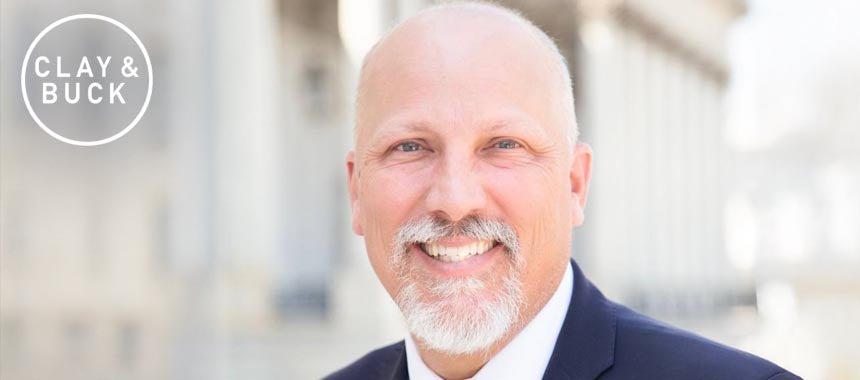
Rep. Chip Roy Weighs in on Minnesota Fraud and the Maduro Capture
The congressman and candidate for Texas AG gives us his take on two huge stories.
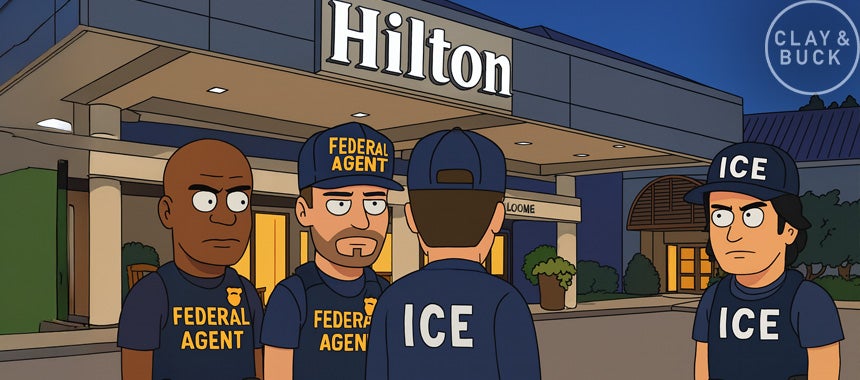
Hilton Swiftly Drops Anti-ICE Franchisee: A Bud Light Lesson Learned?
The Bud Light effect is real. What a vibe shift!
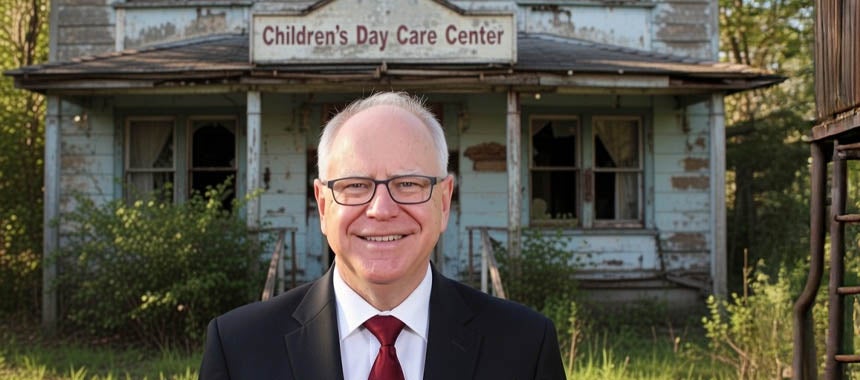
Tim Walz: The Perfect Example of Democrats' Fake, Stereotypical "Manliness" That Repels Real Men
Clay and Buck take a look at the dramatic political demise of Minnesota Governor Tim Walz.
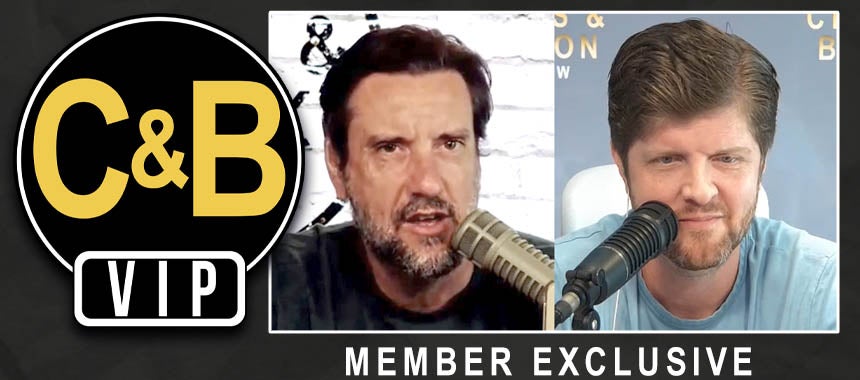
VIP Video: Venezuela Op Sends Message to World
Clay and Buck take a look at the aftermath of the U.S. capture of Nicholas Maduro.
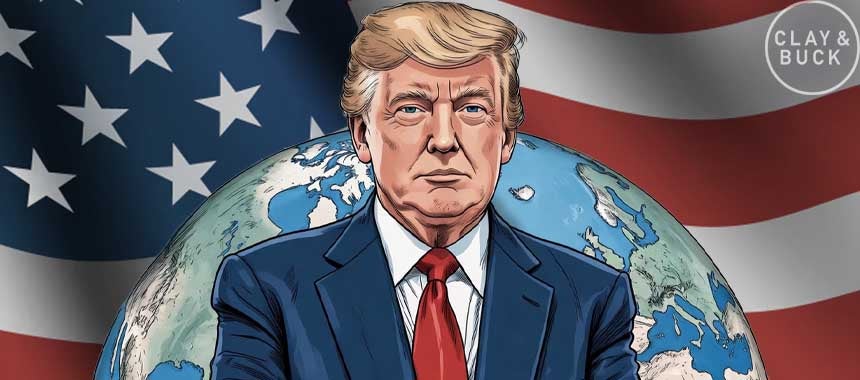
The DONroe Doctrine: Making the Western Hemisphere Great for America
President Trump is reshaping the geopolitical map.





